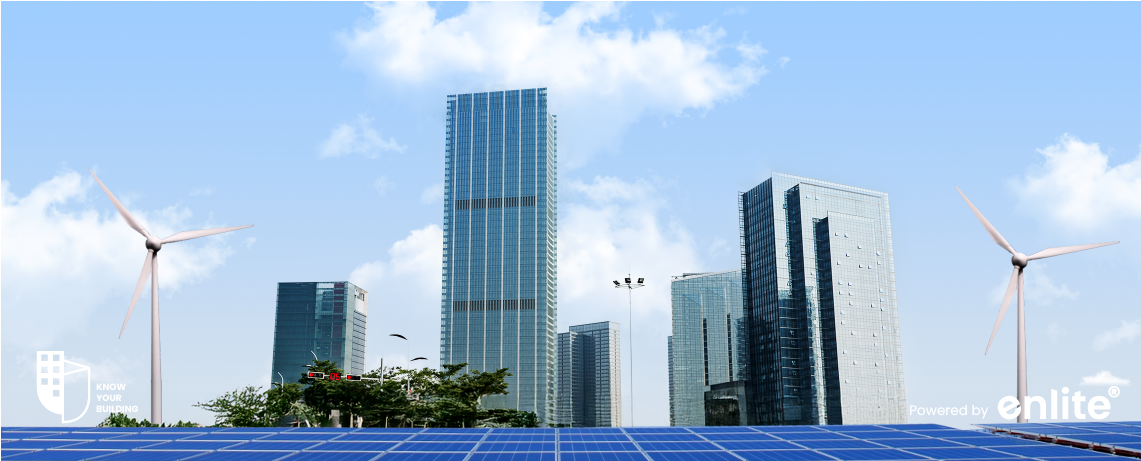With rising operational costs, stricter environmental regulations, and growing tenant demand for sustainable spaces, energy-efficient buildings offer a clear competitive advantage. Implementing energy conservation measures not only reduces expenses but also enhances property value, strengthens tenant loyalty, and improves market reputation.
Why Energy Conservation Matters in Commercial Real Estate
Commercial buildings are among the largest energy consumers globally, accounting for a significant percentage of electricity use and carbon emissions. Property managers, owners, and investors now recognize that optimizing energy efficiency is key to staying competitive. Energy conservation initiatives address key challenges like:
- Cost Reduction: Lower energy bills translate to substantial savings.
- Sustainability Goals: Meet green certifications and regulatory requirements.
- Tenant Retention: Attract eco-conscious tenants seeking sustainable spaces.
- Market Value: Enhance property value with energy-efficient systems.
Modern solutions like Building Management Systems (BMS), such as Know Your Building®, empower commercial real estate stakeholders to conserve energy effectively and achieve long-term competitive advantages.
Energy Conservation as a Competitive Advantage
1. Reducing Operating Costs
One of the most direct benefits of energy conservation is the reduction in operational costs. Energy-efficient systems optimize power usage across lighting, HVAC, and other building functions, driving down utility bills.
- HVAC Optimization: Efficient heating, cooling, and ventilation systems reduce energy waste.
- Smart Lighting Controls: Automated lighting adjusts based on occupancy and natural light availability.
- Real-Time Monitoring: Platforms like Know Your Building® identify energy inefficiencies in real time, enabling quick corrective actions.
By implementing energy-saving measures, commercial properties can cut energy costs by up to 30%, significantly improving profitability.
2. Enhancing Property Value
Energy-efficient buildings are more attractive to investors and buyers. Properties equipped with energy management systems and sustainable features command higher market value and offer better returns on investment (ROI).
- Green Certifications: Achieving certifications like LEED or ENERGY STAR improves credibility and market desirability.
- Future-Proofing: Energy conservation measures ensure buildings remain compliant with evolving energy regulations.
- Long-Term Savings: Reduced operational costs make properties more appealing to stakeholders.
Studies show that energy-efficient buildings can achieve 5-10% higher property values compared to traditional buildings, providing a clear competitive advantage.
3. Attracting and Retaining Tenants
Tenants are increasingly prioritizing sustainability when choosing office or commercial spaces. Energy-efficient buildings not only attract environmentally conscious tenants but also retain them longer by offering cost-effective operations and a comfortable environment.
- Lower Utility Costs: Reduced energy expenses benefit both tenants and landlords.
- Sustainable Workspaces: Modern businesses prioritize eco-friendly workspaces for improved corporate responsibility.
- Improved Comfort: Efficient HVAC and lighting systems create healthier and more productive environments.
A property with energy conservation measures can stand out in competitive markets by offering tenants tangible benefits like lower operational costs and better living or working conditions.
4. Meeting Sustainability and Regulatory Goals
Global initiatives to combat climate change have resulted in stricter energy regulations and sustainability benchmarks. Energy conservation allows commercial buildings to meet regulatory compliance while contributing to broader environmental goals.
- Lower Carbon Footprint: Optimized energy usage reduces emissions.
- Compliance with Regulations: Energy-efficient buildings meet evolving energy standards and avoid penalties.
- Corporate Sustainability Goals: Businesses leasing energy-efficient spaces can align with their environmental initiatives.
Adopting advanced solutions like Know Your Building® helps businesses remain compliant and proactive in achieving sustainability targets.
5. Strengthening Competitive Reputation
Energy conservation also enhances a property’s reputation in the market. Buildings that incorporate sustainable solutions signal innovation, responsibility, and long-term vision to investors, tenants, and customers.
- Eco-Friendly Branding: Energy-efficient buildings position property owners as sustainability leaders.
- Market Differentiation: Stand out in crowded real estate markets with energy-saving innovations.
- Investor Appeal: Green buildings attract socially responsible investors seeking future-ready assets.
A strong reputation for energy efficiency not only sets buildings apart from competitors but also establishes long-term trust and loyalty with stakeholders.
How Know Your Building® Makes Energy Conservation Easy
Energy conservation requires more than good intentions—it demands actionable strategies backed by innovative technologies. Know Your Building®, a cloud-native and wireless Building Management System (BMS), provides commercial real estate stakeholders with the tools to:
- Monitor Energy Usage in Real-Time: Access energy data and performance analytics to identify inefficiencies.
- Automate Energy Controls: Optimize lighting, HVAC, and equipment operations to reduce waste.
- Predict Maintenance Needs: Prevent energy loss through timely maintenance and equipment monitoring.
- Achieve Cost Savings: Lower energy bills by up to 30% with smart automation and data insights.
By integrating Know Your Building®, commercial properties gain access to scalable, cost-effective solutions that deliver measurable energy savings and long-term competitive advantages.
Energy Efficiency: The Key to Real Estate Success
In an increasingly competitive market, energy conservation is more than an environmental responsibility—it’s a strategic advantage. By implementing energy-efficient systems and leveraging advanced tools like Building Management Systems, commercial properties can reduce costs, increase market value, and attract tenants seeking sustainable spaces.
Know Your Building® empowers commercial real estate owners and managers to unlock this potential. Through real-time monitoring, automated controls, and predictive insights, our platform makes energy conservation achievable, measurable, and profitable.
As the commercial real estate industry continues to evolve, those who prioritize energy efficiency will emerge as leaders, securing a sustainable and competitive future.














